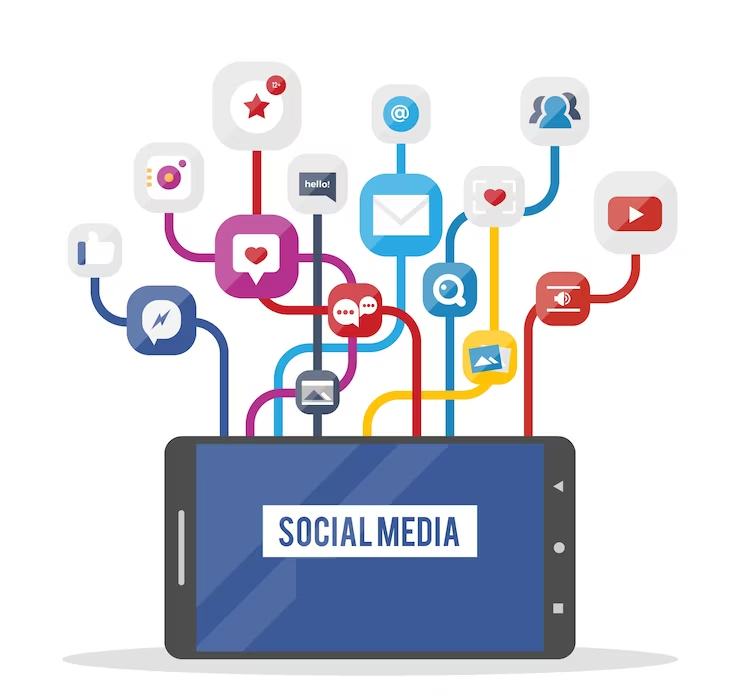Introduction:
Social media has become an indispensable tool for businesses to connect with their customers, build brand awareness, and drive sales. However, managing multiple social media platforms can be time-consuming and overwhelming, especially for small businesses with limited resources. A social media scheduler can help businesses streamline their social media strategy, save time, and increase efficiency.
Understanding the Importance of Social Media Strategy
Social media strategy involves creating and implementing a plan for using social media to achieve business goals. It's essential to have a well-crafted social media strategy that aligns with your business goals and targets your desired audience. Here are some reasons why having a social media strategy is important:
1 - Clarify your goals: A social media strategy helps to clarify your social media goals and objectives.
2 - Reach your target audience: A social media strategy helps you identify the social media channels that are most relevant to your audience, and create targeted content.
3 - Consistent brand messaging: A social media strategy ensures that your brand messaging is consistent across all platforms.
4 - Better engagement: A social media strategy can lead to better engagement with your audience, increasing customer satisfaction.
5 - Measurable results: A social media strategy helps to measure the success of your social media efforts and adjust your strategy accordingly.
6 - Stay ahead of the competition: A social media strategy helps you maintain a competitive edge by constantly refining and improving your strategy.
The Challenges of Managing Multiple Social Media Platforms

Managing multiple social media platforms can present a number of challenges for businesses. Here are some of the most common challenges:
1 - Time-consuming: Managing multiple social media platforms can be extremely time-consuming, especially for small businesses with limited resources. Creating content, scheduling posts, and responding to comments across multiple platforms can take up a significant amount of time.
2 - Overwhelming: With so many social media platforms available, it can be overwhelming for businesses to decide which platforms to use and how to create content that resonates with their audience on each platform.
3 - Inconsistent brand voice: With so many platforms to manage, it can be difficult for businesses to maintain a consistent brand voice and message across all platforms.
4 - Staying up-to-date: Social media platforms are constantly evolving, and it can be difficult for businesses to stay up-to-date with the latest trends and changes.
5 - Metrics and analysis: Measuring the success of social media efforts can be challenging, as each platform has its own set of metrics and analysis tools.
6 - Competing priorities: For many businesses, social media management is just one of many priorities. It can be difficult to balance social media efforts with other important tasks and responsibilities.
7 - Cost: While there are many free social media platforms available, some businesses may need to invest in paid social media tools and advertising to reach their desired audience, which can be costly.
How a Social Media Scheduler Can Help
A social media scheduler can be a valuable tool for businesses looking to optimize their social media strategy. Here are some ways in which a social media scheduler can help:
1 - Save time: A social media scheduler allows you to plan and schedule your social media posts in advance, saving you time and allowing you to focus on other important tasks.
2 - Increase consistency: By scheduling your posts in advance, you can ensure that your content is posted consistently and at optimal times, which can improve engagement and reach.
3 - Manage multiple platforms: A social media scheduler allows you to manage multiple social media platforms from one central location, streamlining your social media efforts.
4 - Customize content: A social media scheduler enables you to customize your content for each platform, ensuring that your content is optimized for each specific audience.
5 - Monitor engagement: A social media scheduler provides you with analytics tools to monitor the engagement of your social media posts and adjust your strategy accordingly.
6 - Collaborate with team members: A social media scheduler allows you to collaborate with team members, assign tasks, and streamline your social media workflow.
Benefits of Using a Social Media Scheduler
Using a social media scheduler can provide several benefits for businesses, including:
1 - Increased efficiency: A social media scheduler allows businesses to plan and create content in advance, saving time and increasing efficiency.
2 - Consistency: A social media scheduler helps businesses to maintain a consistent brand voice and message across different social media platforms.
3 - Improved engagement: A social media scheduler allows businesses to schedule posts at optimal times, increasing the chances of engagement with their target audience.
4 - Measurable results: A social media scheduler allows businesses to measure the success of their social media posts and adjust their strategy accordingly.
Choosing the Right Social Media Scheduler for Your Business

There are several social media schedulers available in the market, each with its own set of features and pricing plans. When choosing a social media scheduler for your business, consider factors such as:
- Number of social media platforms: Choose a social media scheduler that supports the social media platforms your business uses.
- Features: Look for features such as content creation, scheduling, analytics, and team collaboration.
- Pricing: Choose a social media scheduler that fits your budget and offers a pricing plan that suits your business needs.
Best Practices for Using a Social Media Scheduler
To get the most out of a social media scheduler, businesses should follow best practices such as:
1 - Plan content in advance: Plan and create content in advance to ensure a consistent stream of content.
2 - Schedule posts at optimal times: Schedule posts at times when your target audience is most active on social media
3 - Customize content for each social media platform: Customize your content for each social media platform to fit its unique format and audience.
4 - Monitor engagement: Monitor your social media engagement and adjust your strategy accordingly.
5 - Engage with your audience: Respond to comments and engage with audience to build relationships and increase customer loyalty.
6 - Analyze results: Analyze the results of your social media posts and adjust your strategy accordingly.
Conclusion
In today's digital age, social media has become a powerful tool for businesses to connect with their customers and achieve their business goals. However, managing multiple social media platforms can be time-consuming and overwhelming. A social media scheduler can help businesses streamline their social media strategy, save time, and increase efficiency. By choosing the right social media scheduler, following best practices, and analyzing results, businesses can unlock the full potential of social media and achieve social media success.





